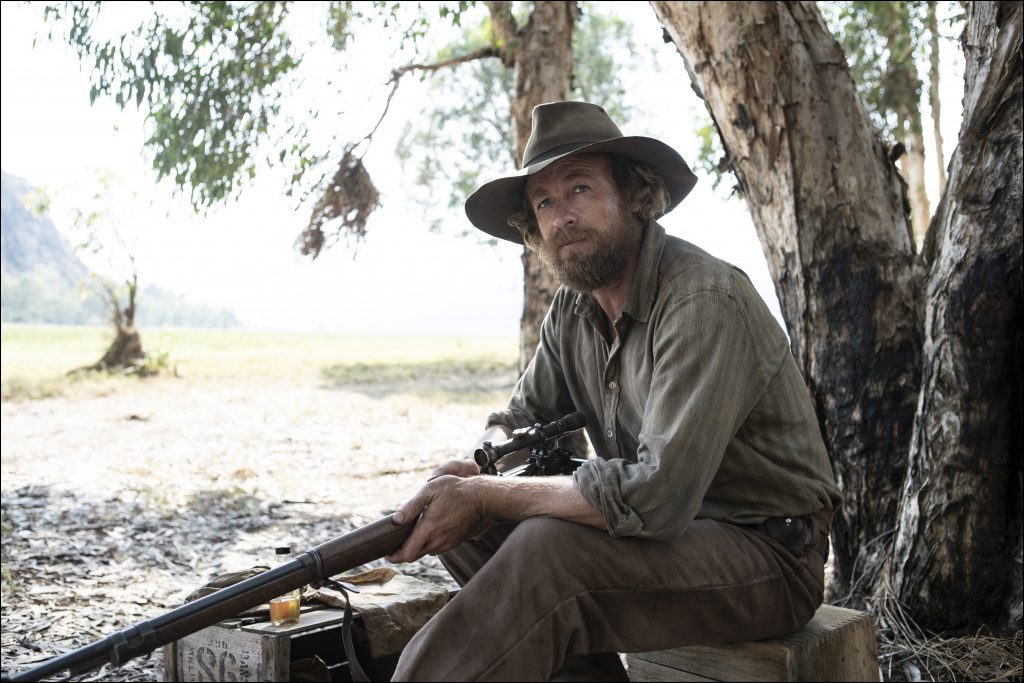High Ground
by Brandon Thomas
The Aussie western is the kind of sub-genre not known for pulling punches. John Hillcoat’s The Proposition and Jennifer Kent’s The Nightingale not only embrace the revenge tropes of the genre, but they also don’t shy away from the brutality of Australia’s colonialist past. The violence and lack of humanity shown to Australia’s aboriginal population is at the heart of High Ground.
In 1919, army sniper Travis (Simon Baker, The Devil Wears Prada and Land of the Dead) leads a raid into the Northern Australian bush that results in a massacre when his men open fire on defenseless men, women and children. Travis finds a lone child survivor, Gutjuk, and delivers the boy to a nearby Christian mission. Years later, another survivor of the massacre, Baywara, is raiding other missions and has killed a white woman. No longer a lawman, Travis is forced into helping authorities track and capture Baywara with the help of a now-grown Gutjuk (Jacob Junior Nayinggul).
There’s no getting around Australia’s horrific past with a movie like this one. Thankfully, director Stephen Johnson and writer Chris Anastassiades give plenty of voice to the aboriginal characters. Gutjuk is the heart of the film, and his pull back-and-forth between worlds gives the film some of its best drama. It’s a role that could have easily been nothing more than a wide-eyed observer. However, the sense of injustice that begins to boil over within Gutjuk allows the character to make those “morally gray” decisions that are a staple of the western.
High Ground isn’t the kind of fist-pumping movie that emulates the films of John Wayne or Clint Eastwood’s spaghetti westerns. The action sequences aren’t about excitement. They all come with consequences. Johnson goes to great lengths to stress that this violence isn’t cool. That this violence is used to subjugate, to silence.
Baker gives one of his best performances to date as Travis. There’s a lot of unspoken history happening within the character that anyone with a knowledge of Australia’s connection to World War I will understand. The horrors of that war weren’t left behind on the battlefields of Europe. They followed these men home and manifested in atrocities of their own. Baker plays this with a quiet intensity that erupts through bursts of violence. It’s a character begging for forgiveness through his actions…a forgiveness he may never be granted.
High Ground doesn’t match those larger-than-life widescreen epics of yesteryear, but it’s also not trying to be that. This is a contained, character-driven story that’s much more preoccupied with moral dilemmas than it is expansive vistas.



